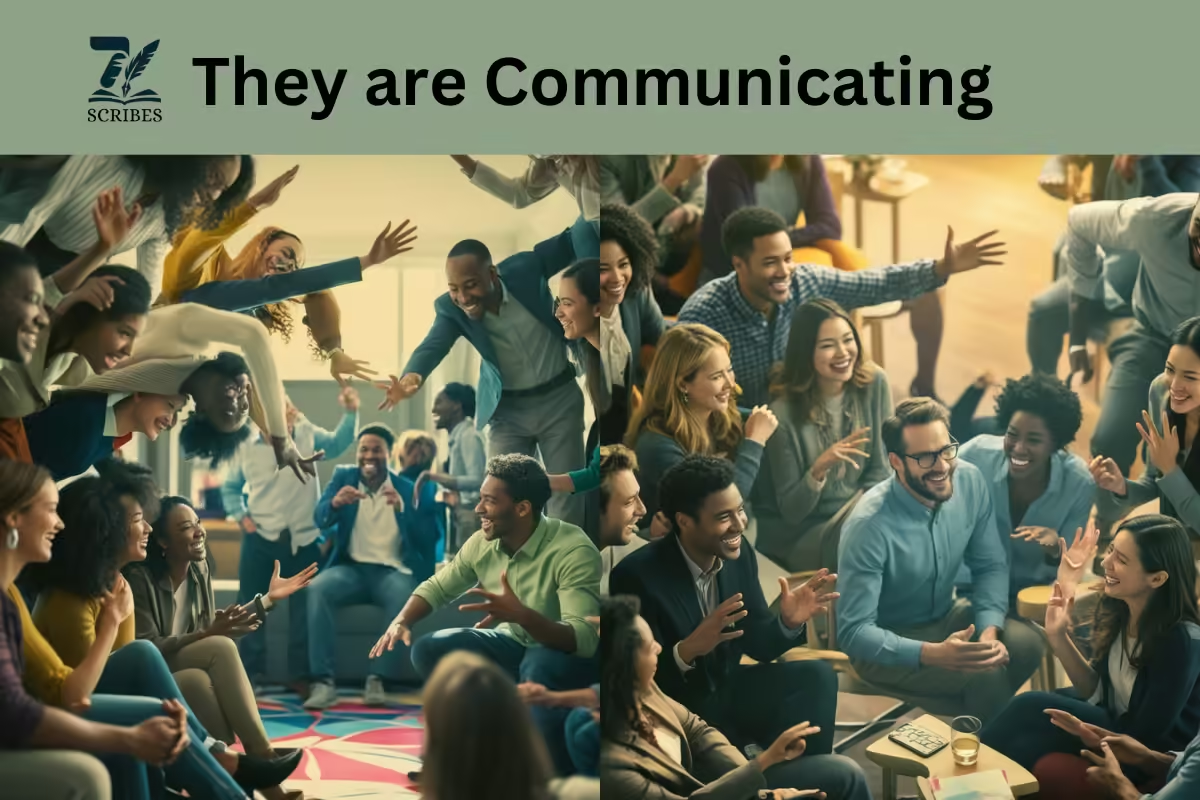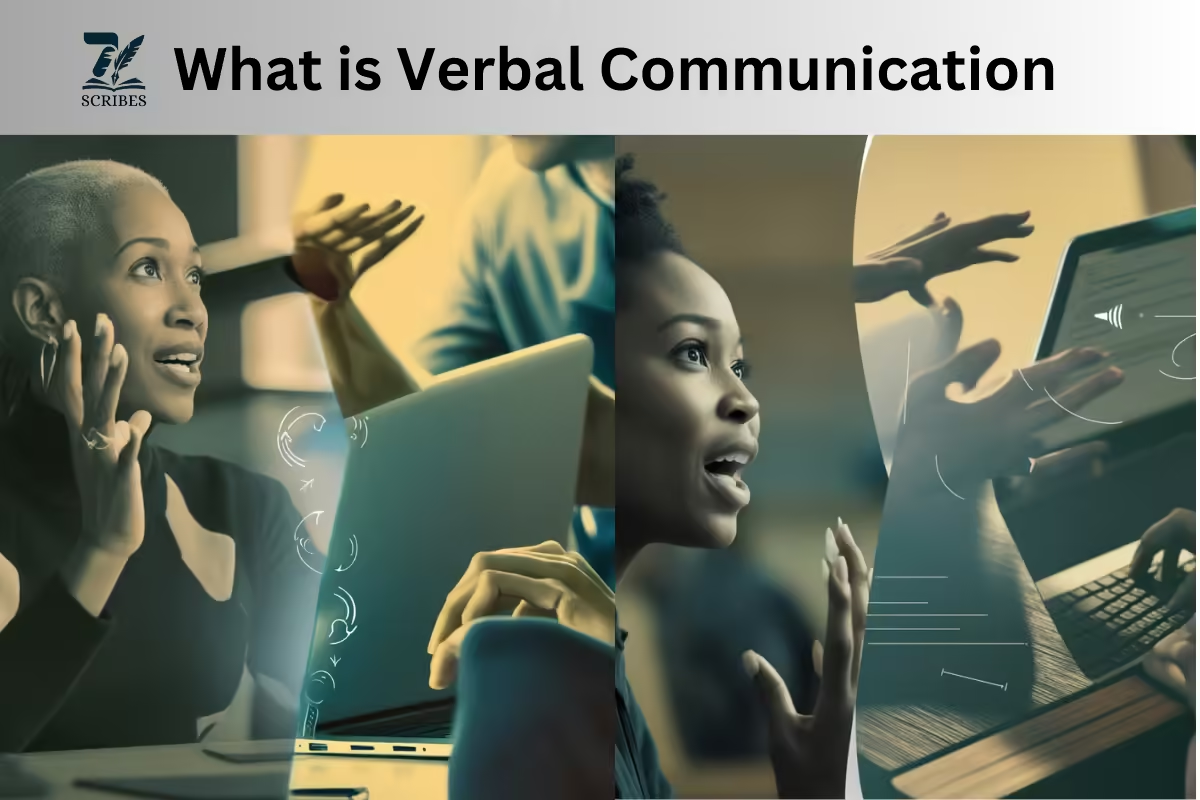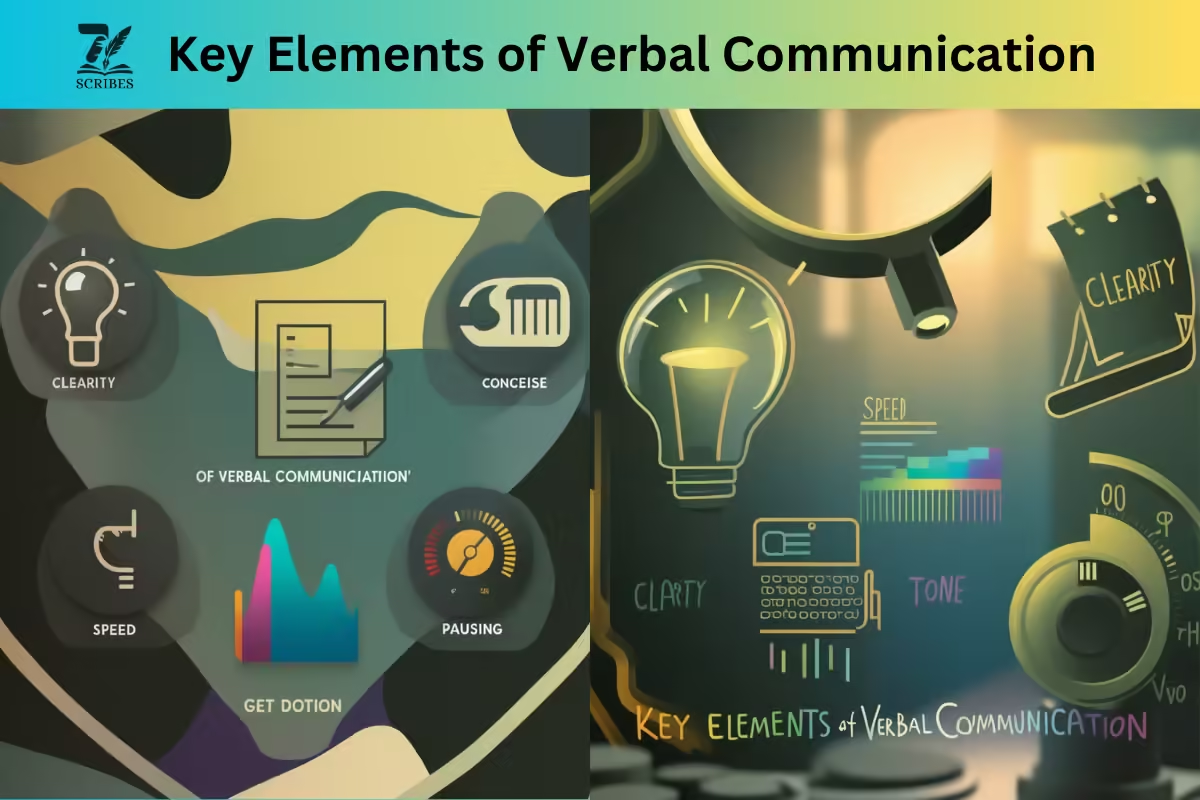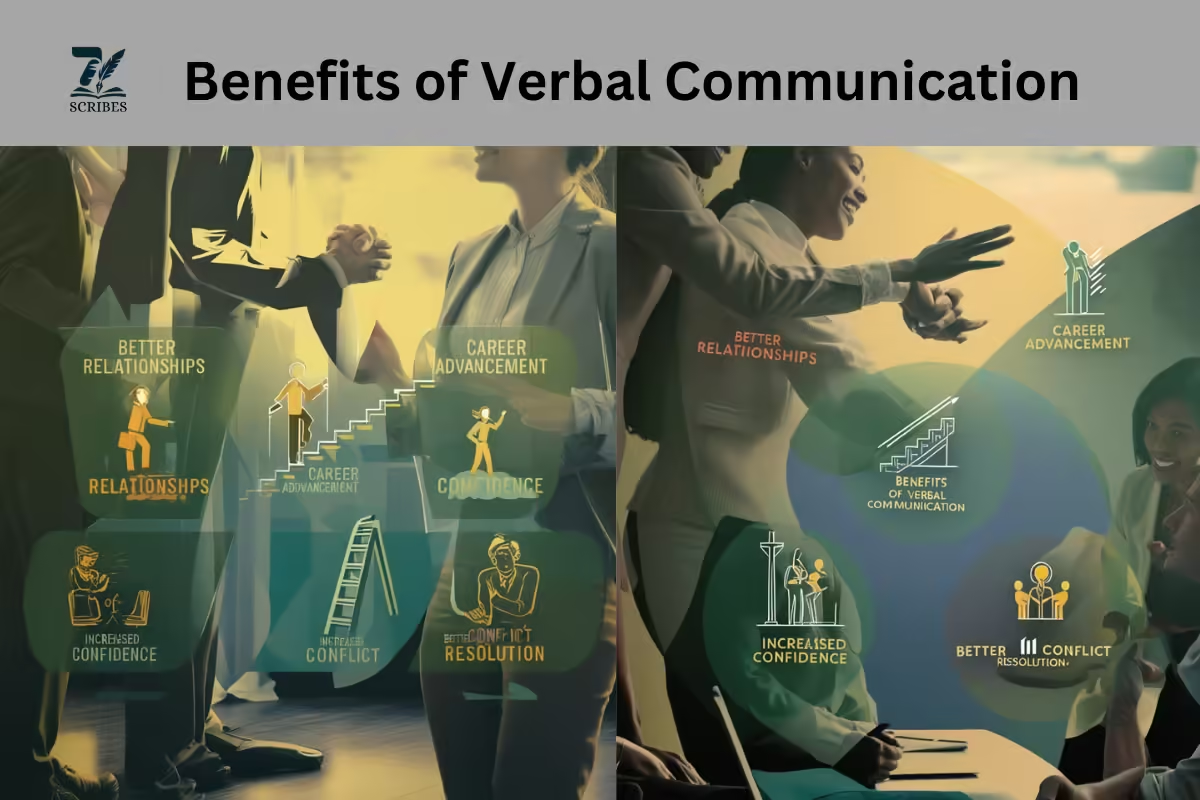Verbal communication is crucial for everyone, whether you are a student, professional, or businessman. Imagine you are walking in a room filled with people. They are conversing with each other. Each conversation is buzzing with excitement, ideas, and connections. At that moment, the way you communicate your words, tone, and expressions can shape how others see you, understand you, and connect with you. This is the power of verbal communication.

From job interviews to casual conversations, our ability to express ourselves through spoken words affects every aspect of our lives. However, effective verbal communication is not just about talking. It is truly connecting with others, sharing ideas clearly, and building meaningful relationships. In this blog, we will explore the different types and importance of verbal communication. We will also dive into essential skills, strategies, and tips you need to become a more confident and effective communicator.
What is verbal Communication?
It is the process of sharing information through words, whether spoken or written. It includes how we deliver our message, such as tone, speed, volume, and clarity. Unlike nonverbal communication, which involves body language, facial expressions, eye contact, and gestures, verbal communication relies on the words we choose to deliver our message or thoughts.

Key Elements of Verbal Communication:
To communicate effectively first we need to understand the important elements of verbal communication. Some key elements of verbal communication are
- Clarity
- Concise
- Tone
- speed and volume
- Emphasis and Pausing

Clarity:
It is the quality of being clear, understandable, and free from confusion or ambiguity. In communication, clarity means delivering messages in a way that is straightforward for the listener to grasp without misunderstanding. In simple words, it is about the right words to make sure the audience understands your point accurately.
Concise:
Concise means delivering the message in a clear, brief, and to-the-point manner. It involves the use of necessary words to communicate essential ideas without unnecessary details or repetition.
Tone:
The tone is the mood or feeling behind the words someone uses. It shows how the speaker or writer feels about what they are saying.
For example:
A serious tone sounds more formal and strict.
A friendly tone can create warmth and openness.
Speed and Volume:
Speaking too quickly or slowly, too loudly or softly can affect the effectiveness of the message. A balance of speed and volume ensures clarity daily and engagement. Placing emphasis or stress on key points and using pauses can help to highlight important points of the message making it more impactful and easier to understand.
Benefits of Strong Verbal Communication Skills
Strong verbal Communication offers many benefits including
- Better Relationship
- Career Advancement
- Increased Confidence
- Better Conflict Resolution

Better Relationship:
Effective verbal communication can help to improve Relationships in professional and daily life. It fosters, trust, empathy, and understanding.
Career Advancement:
It means using your strong communication skills to move ahead in your job. Being able to communicate well can help you become a better leader, make a connection, persuade, negotiate, and work well with others.
Increased Confidence:
Effective Verbal communication can also help to boost or increase confidence. Because when you know how to speak clearly, it becomes easier to express your ideas and opinions. This reduces hesitation and self-doubt and boosts your confidence.
Better Conflict Resolution:
Strong verbal communication can effectively handle a conflict as compared to others. A strong verbal communicator addresses the conflict calmly and clearly, which reduces misunderstanding.
Tips for Improving Verbal Communication:
Here are some tips you can use to enhance your verbal communication:
- Practice Active Listening
- Choose Your Words Carefully
- Speak with Confidence
- Seek Feedback
- Practice Regularly
Conclusion:
Verbal communication is not just the exchanging of words. It is a powerful tool for connecting with others, expressing ourselves, and achieving our goals. By improving your communication skills, you can make a lasting impression and foster strong relationships. Moreover, you can achieve success in various expects of life. Start practicing today, and experience the benefits of clear and confident communication.
FAQ’s
Q1) What are verbal methods?
Verbal methods are ways of communicating through words, either spoken or written. These include speech/conversation, writing, presentations, storytelling, and debates/discussions. They rely on language to express ideas and share information.
Q2) What are the 4 types of verbal?
The four types of verbal communication are:
Oral: Spoken words (e.g., conversations, speeches).
Written: Written words (e.g., emails, reports).
Tone: Vocal elements like pitch and volume.
Listening: Actively understanding spoken or written messages.
Q3) What are the verbal techniques?
Verbal techniques are strategies to communicate effectively, including:
Clarity: Simple and clear language.
Tone: Adjusting pitch and emotion.
Pacing: Controlling speech speed.
Repetition: Reinforcing key points.
Storytelling: Using narratives to engage.
Persuasion: Influencing the audience.
Keep up the good work